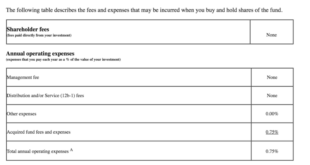New Mortgage Brokers: A Guide to Starting Your Career. Becoming a mortgage broker can be a lucrative and fulfilling career path, but it requires dedication, knowledge, and strategic planning. If you’re just stepping into the world of mortgage brokerage, this guide is here to provide everything you need to know, from certifications to growing your business effectively.
What Is a Mortgage Broker?
A mortgage broker acts as an intermediary between borrowers and lenders. They help clients find the best loan options tailored to their financial situations while earning a commission for each successful transaction. Unlike loan officers tied to specific banks, brokers can access various lending institutions, giving clients broader choices.
Steps to Becoming a Successful Mortgage Broker
- Research the Role
Before diving in, understand what mortgage brokers do daily. This includes networking with lenders, assessing client needs, and staying updated on market trends. - Meet Educational Requirements
Most states require a high school diploma or equivalent. However, pursuing courses in finance, economics, or business administration can provide an edge. - Obtain Licensure
- Pass the Nationwide Mortgage Licensing System (NMLS) exam.
- Complete pre-licensure education, typically around 20 hours.
- Undergo a background check and credit review.
- Gain Experience
Working under an established brokerage can give you hands-on experience before launching your practice. - Choose a Niche
Specializing in specific markets, like first-time homebuyers or luxury real estate, can help you stand out. - Build a Network
Establish connections with real estate agents, lenders, and other professionals to expand your reach and credibility.
Marketing Tips for New Mortgage Brokers
- Create a Professional Website
Ensure it includes a blog, client testimonials, and an easy way to contact you. Optimize it for local SEO. - Leverage Social Media
Platforms like LinkedIn and Instagram can help you showcase your expertise and connect with potential clients. - Develop Email Campaigns
Regular newsletters keep your audience informed about market trends and special offers. - Attend Networking Events
Meet industry professionals and potential clients at local events and trade shows. - Offer Free Resources
Share informative guides or calculators on your website to attract leads.
10 Tips for New Mortgage Brokers
- Build a solid foundation in mortgage laws and market dynamics.
- Focus on providing exceptional customer service.
- Use CRM software to manage leads effectively.
- Stay compliant with all regulatory requirements.
- Continuously improve through professional development courses.
- Be transparent with clients about fees and processes.
- Partner with seasoned brokers for mentorship opportunities.
- Regularly evaluate your marketing strategies.
- Diversify your lender partnerships.
- Emphasize clear communication to build trust.
10 FAQs About Becoming a Mortgage Broker
- What qualifications are needed to become a mortgage broker?
Most states require a high school diploma and NMLS licensure. - How long does it take to become a licensed broker?
The process typically takes 6–12 months, depending on educational and licensing requirements. - What skills are essential for success?
Strong communication, negotiation, and analytical skills are crucial. - Do brokers work independently or with firms?
Both options are available, depending on your preference and experience. - How much can a mortgage broker earn?
Income varies but averages between $50,000 and $120,000 annually, depending on location and experience. - Is it a stable career choice?
Yes, especially in regions with active real estate markets. - What is the role of technology in mortgage brokerage?
Tools like loan comparison software and CRMs streamline processes. - How do brokers find clients?
Networking, online marketing, and referrals are key strategies. - Are there risks involved?
Yes, including market downturns and regulatory changes. - Can brokers specialize in specific loan types?
Absolutely. Specializing can help attract targeted clients.
Conclusion
Embarking on a career as a mortgage broker is both exciting and challenging. The role demands thorough preparation, industry knowledge, and a strong dedication to serving clients’ needs. By following the steps and tips outlined in this guide, new mortgage brokers can lay the foundation for long-term success.
As the real estate market evolves, staying adaptable and informed will ensure your growth in this competitive field. Seize opportunities to learn, network, and deliver excellent service—your efforts will be rewarded with a thriving career.
 mortgage.kbk.news
mortgage.kbk.news
